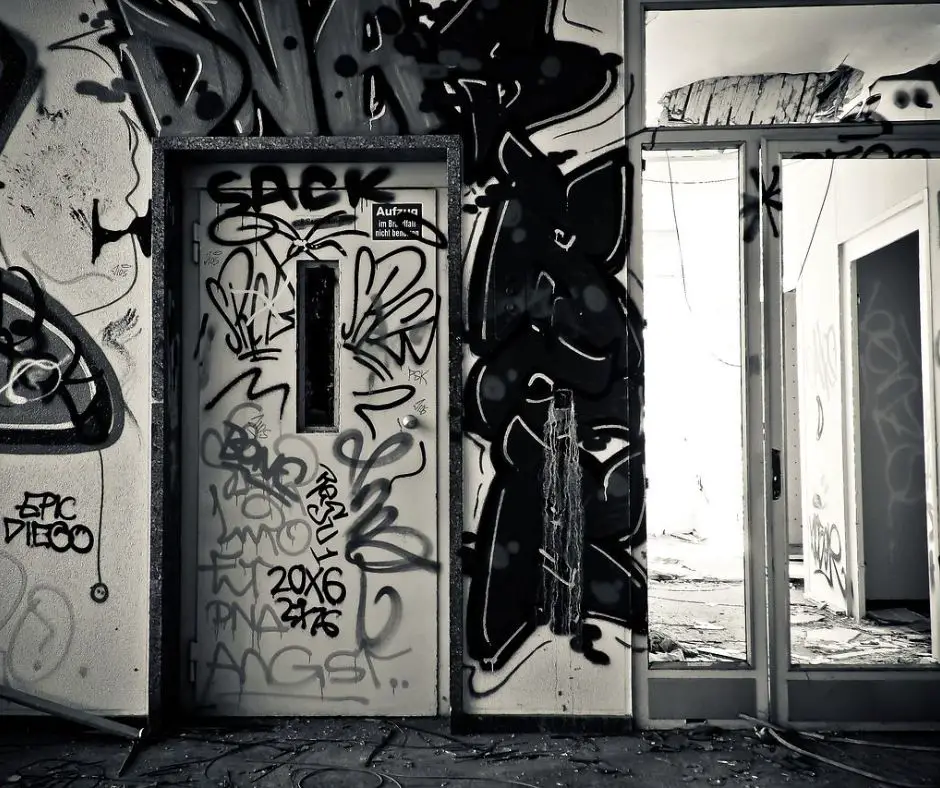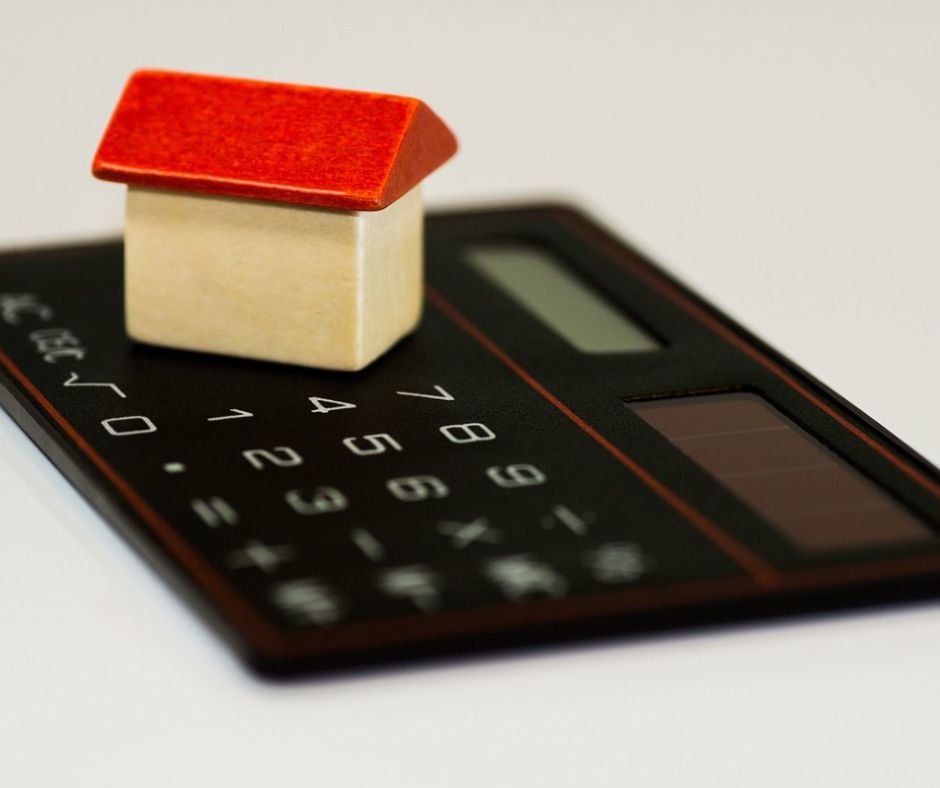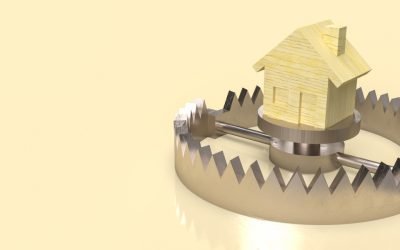Are you a UK property investor who is looking to make the most of your investment? Have you ever wondered what brings down the value of a house? Sure, there are many factors that can cause a decrease in the price of a property.
Many factors can reduce the value of a house. These include the age and condition of the house, location, associated costs and taxes, general market trends, limited features or amenities, and any underlying damage such as foundation issues or water damage.
But, if you know what to look out for and how to avoid these pitfalls, then you can ensure that your investment doesn’t lose its worth. In this article, we’ll take a closer look at some of the most common causes of a decrease in house prices and how best to tackle them.
We all know that buying a property is an important decision and one that should not be taken lightly. But it’s also important to understand how certain factors can affect the value of your asset. From structural problems to location issues, there are numerous reasons why the price of your property may drop. So let’s get into it!

No matter what kind of property investor you are – whether you’re just starting out or have been investing for years – understanding why houses devalue is essential knowledge for anyone looking to buy or sell their home. By understanding which factors can bring down the price of a house, investors can protect their investments and ensure they don’t suffer from any unexpected losses. Read on to find out more about what brings down the value of a house!
Factors That Influence The Price Of A Home
Like a tapestry of intricate threads, many factors influence the sale price of a home. The economic climate, curb appeal, property maintenance and local trends are just some of the key considerations when it comes to valuing a house.
The economic environment has an overarching influence on the housing market. Interest rates, unemployment levels and consumer confidence can all affect whether people are willing to commit to buying or selling a property. It’s not uncommon for buyers to become cautious in uncertain times and wait until conditions improve before making an offer.
A property’s aesthetic can attract potential buyers or dissuade them from viewing it further. From first impressions at the kerb onwards, good presentation is vital for getting the right price for your home – consider painting window frames, tidying up the garden and removing clutter inside and out. Property maintenance is also essential – regular upkeep of fixtures and fittings will help maintain a good standard throughout and add value down the line.
Finally, staying aware of local trends ensures you’re well-informed when setting an asking price for your home. Whether it be new schools or transport links being built nearby, such developments have an impact on what buyers may be willing to pay in that area. With these factors in mind, location plays a huge role in determining a property’s worth…
Location
Location is one of the major factors that can bring down the value of a house. Here’s what to consider:
- Proximity to amenities: Is it close enough to banks, supermarkets, hospitals, and other facilities?
- Nearby schools: Are there good schools in the area?
- Commute times: How long does it take to get to work or other destinations?
- Council tax: Is it too high for potential buyers?
- Local crime rates: Do people feel safe when they live there?
Taking all these aspects into account will give you an idea of how attractive your property is. Poorly maintained property or if it’s situated in a less desirable location can significantly reduce its value. On the other hand, proximity to amenities, nearby schools, reasonable commute times and low crime rates can increase the marketability of your home.
Poorly Maintained Property
The condition of a property has a huge impact on its value. Poorly maintained property can bring down the value significantly. Property maintenance is crucial, especially if you’re looking to get the best out of your investment.
A house that is well-maintained and in good condition will always be more attractive to buyers than one that isn’t. It’s important to keep on top of all property upkeep so that your house looks as good as it possibly can. This includes regular cleaning, repairs, painting and landscaping.
House upkeep should never be overlooked as it can make or break the sale price of the property. If you fail to keep up with the necessary maintenance, then buyers will have reservations about buying your home and could look elsewhere for better options. Investing in regular maintenance and upkeep can help increase its market value and ensure it remains desirable for potential buyers.
Outdated Design And Features
It’s true that the market can be volatile, but this doesn’t mean a property’s worth is predetermined. After all, there are many factors that can bring down the value of a house. One of the most significant is outdated design and features. It’s not hard to tell when a home isn’t up-to-date with modern trends. If the interior and exterior of a property don’t match current tastes, it won’t be attractive to potential buyers.
The interior might feature dated furniture or paint schemes, while the exterior could have outdated roofing or siding. These features are often difficult to change without spending money on renovations, which means they can make a house less desirable in comparison to other properties in its price range. As such, these kinds of design elements can drive down the value of a home substantially.
Furthermore, even if someone likes an older property and decides to buy it despite its age, they may be offered less than asking price due to concerns about necessary repairs and improvements needed before they move in. This could leave them with fewer funds for any changes they wanted to make themselves – leading them to look elsewhere for their dream home.
Clearly then, outdated design and features can have an adverse effect on both the marketability and perceived value of a house – making it essential for investors to consider such elements when selecting suitable properties for investment purposes or resale opportunities.
Lack Of Kerb Appeal

Our appearance matters. And it’s no different when it comes to the value of a house. Kerb appeal can have a huge impact on the value of a home. It’s something that can’t be overlooked when considering property investment.
The importance of kerb appeal should never be underestimated. A lack of it will bring down the value of a house significantly, regardless of the location or condition of the interior. A good first impression is always essential, as it sets the tone for potential buyers and investors alike.
Benefits are plentiful when there’s strong kerb appeal value. It’s not only about giving your property a face-lift; it also sends out positive messages about how well you’ve taken care of your home and suggests that future maintenance won’t be an issue either. This is why investing in kerb appeal is so important; anything from painting shutters to replacing garden fixtures can make all the difference and increase the chances of making a sale or attracting potential tenants for rental properties.
Kerb appeal is vital for any property investor looking to maximise profits and secure their investment – so take steps to ensure yours stands out from amongst its competitors!
Unhealthy Neighbourhoods
It is no wonder that a lack of kerb appeal can bring down the value of a house. Unhealthy neighbourhoods can be even more detrimental. Neighbourhood crime, safety, amenities, nearby schools, and property taxes all factor into the value of a house. If any of these elements are off-putting or less than desirable, it will have an impact on the saleability and price tag of the house.
When researching an area for potential investment properties, it is important to look beyond surface level appearances and investigate deeper. Obstruction of views can be unsightly and inconvenient but safety risks are much more serious matters. Any level of neighbourhood crime should be researched thoroughly before investing in any property in the area. This includes drug dealing and other criminal activities as well as possible gangs or terrorist groups operating within the vicinity.
Neighbourhood safety should also be taken into account when assessing an area’s desirability; this includes access to local amenities such as parks, convenience stores, and public transportation systems as well as nearby schools if there are children living in the house. It is also important to consider how high property taxes are for each particular district since this could make owning an investment property financially unfeasible for some investors. High taxes could also make it harder to sell a property at an attractive price tag if buyers cannot afford to pay them.
Ultimately, all these factors must be weighed up objectively to make sure that any investment made is worth its value and will provide long-term returns without unnecessary risks or financial loss due to overpricing or unhealthy neighbourhoods.
Overpricing
When it comes to pricing, overpricing can be a major factor in bringing down the value of a house. Overestimating the price of a property can lead to an overvalued home, which will sit on the market for too long and eventually be sold for much less than its true worth. This makes it difficult for buyers to trust that they’re getting a fair deal. Furthermore, buyers are likely to pass over an overpriced house in favour of one that is more accurately priced. Therefore, if you want to avoid devaluing your home, make sure you don’t set the asking price too high.
Inflated prices are not only bad news for sellers but also for potential buyers as it can lead them into financial trouble or even bankruptcy if they overextend themselves financially. To prevent this from happening, it’s important to take into account all factors when setting a price and not just rely on emotion or intuition. Do your research, compare similar properties in the area and use local data to come up with an accurate asking price.
Property investors should also pay close attention to economic conditions which can have a significant impact on property values. Look out for changes in interest rates and unemployment figures, as well as any other signs of economic instability which could affect the housing market in your area. Keeping track of these factors will help you avoid buying or selling at an inappropriate time and protect you from making costly mistakes when investing in real estate. With this knowledge, you’ll be better equipped to assess whether or not now is the right time to buy or sell a property in order to maximise its value while minimising losses.
Economic Conditions
The economic conditions of an area can have a big impact on how much value a house has. Financial uncertainty, economic downturns, and high unemployment rates can all cause property values to plummet. In the table below, we take a look at some of the key factors that determine a house’s worth in relation to current economic conditions.
| Factor | Positive Effect | Negative Effect |
| Interest Rates | Low rates encourage investment | High rates discourage investment |
| Economic Growth | Growing economy boosts confidence in real estate market | Recession leads to decrease in house prices |
| Employment Rate | Low unemployment rate attracts buyers with steady incomes | High unemployment rate reduces demand for housing |
It’s important to remember that these are external factors that affect the local real estate market, rather than individual properties. By understanding how macro-economic trends can influence house prices, you’ll be better equipped to make informed decisions when it comes to investing in property. With this knowledge, you can plan ahead and benefit from future opportunities – or avoid potential pitfalls – depending on the wider economic outlook.
Local Market Trends
The local market trends can have a huge impact on the value of a house. Real estate markets are dynamic and ever-changing, so being aware of the local trends is essential for any property investor. It’s important to understand that even if economic conditions are favourable, there may be other factors that bring down the value of a house.
What are some of these local market trends? The most common one is supply and demand. If there is an increase in new homes being built or more people moving into an area, then this could reduce the value of existing homes due to increased competition. On the other hand, if there are fewer homes available or fewer people looking to buy, then this could drive up prices as buyers compete for property.
Other factors include neighbourhood amenities such as schools and transport links, as well as crime rates and general upkeep of the area. All of these local elements can influence how desirable an area is, which can then affect house prices accordingly.
Having an awareness of these market trends will help you make informed decisions when buying or selling property in any given area. Now let’s take a look at recent home sales in order to gain further insight into current market conditions.

Recent Home Sales
Recent home sales can have a huge impact on the value of a house. It’s important to understand how recent sales are affecting prices in the local area. This information can be found by looking at estate agent websites and online property portals, or by visiting your local estate agents. You can read about the UK’s equivalent websites to the US’s Zillow here.
In the UK, most estate agents will give you an up-to-date overview of what properties are selling for in your area. This is invaluable information when it comes to assessing the current market prices for houses in your neighbourhood. If a property recently sold for lower than expected, this could mean that other houses in the area are downvalued too.
It’s also worth considering any recent changes to infrastructure or development projects which could potentially affect house prices. If there is new construction going on nearby, this could bring more people into the neighbourhood and increase demand for housing, resulting in higher property values overall. On the flip side, any disruption caused by construction work can put buyers off making an offer, thus reducing demand and lowering prices.
Whatever the situation may be, it’s essential to keep up with current trends in order to make sure you’re getting the best value out of your house purchase or sale. Keeping an eye on recent home sales will help ensure you’re making an informed decision about buying or selling a property in your local area.
Frequently Asked Questions
How Long Does It Typically Take For A House To Decrease In Value?
When it comes to house value, the speed of a decrease can vary significantly. In fact, according to the latest research, house values can take anywhere between one and three years to decrease in value. This timeframe is largely determined by a number of factors, such as market trends, government programmes and economic conditions.
For UK property investors, understanding how long it can take for a house’s value to decrease is essential when making decisions about their investments. With this in mind, there are a few key things that should be taken into consideration when estimating the timeframe of a decrease in value.
Firstly, market forces can play an important role in determining how quickly a house’s value decreases. For example, if there’s an increase in demand for housing in the local area then it could cause prices to rise and delay any potential decreases.
Secondly, government programmes such as Help to Buy schemes could also delay any decreases in house values as they help people get onto the property ladder and put more money into circulation.
Finally, economic conditions can also affect how quickly a house will decrease in value; if there’s an overall slowdown in growth or an increase in unemployment rates then this could have an impact on property prices over time.
It’s important for UK property investors to be aware of these factors when assessing how long it might take for their investment properties to reduce in value – especially if they are looking to make short-term gains on their investments. Being able to accurately estimate the timeframe of any potential decreases is critical when making decisions about future investments and ensuring that they are profitable over time.
Is It Possible To Increase The Value Of A House With Renovations?
It’s no secret that home improvements can be a great way to increase the value of your house. Renovations and home improvements can bring in a nice return on investment when done correctly. But how effective are they at increasing the value of a house?
As any UK property investor will tell you, there are certain renovations that can add significant value to your home. Things like remodelling the kitchen, adding an extra bedroom, or modernising the bathrooms all have the potential to add thousands of pounds to your home’s value. Even making small changes such as replacing windows and doors can make a difference.
While it is possible to increase your home’s value by making improvements and renovations, it is important to keep in mind that not every renovation will do so. It is also important to consider the cost of these renovations versus their potential return on investment before diving into any projects. However, if done correctly, investing in renovations and home improvements could provide you with a great return on investment and increase your house’s value significantly.
What Are The Tax Implications Of Selling A House That Has Decreased In Value?
The current economy is an important one for any UK property investor to consider: what are the tax implications of selling a house that has decreased in value? Selling a home at a price lower than its purchase price can be disheartening, but it’s important not to let emotion get in the way when considering one’s financial position. Knowing the potential taxes associated with selling a house that has decreased in value can help an investor make a smart decision.
Property tax is one of the main tax implications when it comes to selling a house that has decreased in value. As long as there is no capital gains exemption or deferral, any money made from such a sale may be subject to property tax. The amount of tax will depend on various factors, including if and how much the house has depreciated since purchase and which state or country the sale takes place in. An investor must take all these factors into account before deciding whether or not to sell.
In addition to property tax, capital gains should also be considered when selling a house that has decreased in value. Capital gains are generally taxed at a higher rate than other income sources and can have an even bigger impact on an investor’s finances depending on their personal situation and if they qualify for any exemptions or deferrals. Knowing this information beforehand helps investors better plan their finances and make informed decisions about whether or not to sell their home at less than its purchase price.
As any experienced UK property investor knows, understanding the tax implications of selling a house that has decreased in value is key to making sound financial decisions. It pays off to do some research ahead of time – saving yourself from unexpected costs down the line!
What Is The Best Way To Market A House With A Low Value?
When it comes to selling a house with a low value, it is important to consider the best way to market it. As a UK property investor, I understand how difficult it can be to sell a low value house. There are several tips and tricks that you can use to help you maximise the potential of your house’s value and make it more attractive to potential buyers.
In order to market a low value house successfully, you need to create an attractive presentation that appeals to buyers. This means highlighting the features and advantages of the property as well as emphasising its positive points. You should also make sure that any repairs or renovations are complete before listing the house for sale. Additionally, you may want to consider staging the property in order to make it look more inviting.
Advertising your low value house is another key aspect of successful marketing. Utilising both online and traditional forms of advertising will help get your listing seen by more people, increasing the chances of finding buyers who are interested in making an offer on your property. Furthermore, pricing your house competitively will help draw attention from prospective buyers who may have previously overlooked your listing due to its lower price tag.
Whether you’re just getting started in real estate or are an experienced investor looking for ways to increase profits on a low-value home sale, following these tips can help ensure that you get the maximum amount of money for your property without having to invest too much time or money into marketing it.
Conclusion
It is clear that the value of a house can go down, and it’s worth taking steps to try and prevent this. As a UK property investor, I’m passionate about helping homeowners to maintain the value of their homes. It’s heartbreaking to see how quickly a home can decrease in value due to factors outside of our control.
However, there are steps we can take to mitigate this risk and protect ourselves from financial losses. By researching government programs, making renovations where possible, and being aware of the tax implications associated with selling a house with a low value, we can ensure that even if the house loses its value, we will still be able to move forward with dignity and pride.
The reality is that life throws curveballs sometimes, but by being proactive and staying informed on various aspects related to home ownership, you can weather any storm that comes your way. With proactive measures in place, you can protect yourself from potential losses when it comes to the market value of your home.
- Rent-to-Rent Schemes: Hidden Dangers Lurk - July 6, 2024
- How to Sell Your House Fast in Kent - July 5, 2024
- 7 Tips to Sell Your House Fast - July 4, 2024


